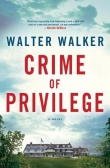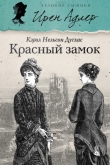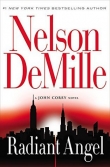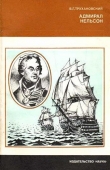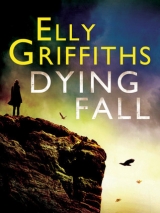
Текст книги "Dying Fall"
Автор книги: Elly Griffiths
Соавторы: Elly Griffiths
Жанр:
Триллеры
сообщить о нарушении
Текущая страница: 1 (всего у книги 20 страниц)

DYING FALL
ELLY GRIFFITHS
DYING FALL

First published in Great Britain in 2013 by
Quercus
55 Baker Street
7th Floor, South Block
London
W1U 8EW
Copyright © 2013 by Elly Griffiths
The moral right of Elly Griffiths to be identified as the author of this work has been asserted in accordance with the Copyright, Designs and Patents Act, 1988.
All rights reserved. No part of this publication may be reproduced or transmitted in any form or by any means, electronic or mechanical, including photocopy, recording, or any information storage and retrieval system, without permission in writing from the publisher.
A CIP catalogue reference for this book is available from the British Library
HB ISBN 978 0 85738 886 5
TPB ISBN 978 0 85738 887 2
EBOOK ISBN 978 0 85738 888 9
This book is a work of fiction. Names, characters, businesses, organizations, places and events are either the product of the author’s imagination or are used fictitiously. Any resemblance to actual persons, living or dead, events or locales is entirely coincidental.
You can find this and many other great books at:
www.quercusbooks.co.uk
Also by Elly Griffiths
The Crossing Places
The Janus Stone
The House at Sea’s End
A Room Full of Bones
For John Maxted
and for Sarah and Michael Whitehead
‘That strain again! It had a dying fall:
O, it came o’er my ear like the sweet sound
That breathes upon a bank of violets
Stealing and giving odour! Enough, no more;
Tis not so sweet now as it was before …’
Shakespeare, Twelfth Night
PROLOGUE
At first he isn’t even scared. Even though his room is full of smoke, and when he reaches the top of the stairs the heat makes him stagger backwards, eyes stinging. It’s only a fire and he knows what to do in a fire, he learnt it at Cubs some thirty years ago. Besides, he’s in a tiny two-storey house, not the Towering Inferno (a film that he must have watched at about the same time, come to think of it). He knows the bedroom window doesn’t open and the bathroom window’s too small but the front door is only a few steps away, just down those stairs. How hard can it be? Still calm, he goes back into the bathroom and soaks a towel, just like Akela told him. He wraps the towel round his face and starts to descend the stairs. It is hard, far harder than he thought possible. In the past he has read about people in fires being ‘beaten back by the heat’ and, deep down, he had always thought, ‘Wimps. It’s just hot air. Push through it.’ But this doesn’t seem like air any more, it’s solid, and he has to batter against it with his whole body. After three steps he is exhausted and the heat is just getting stronger. He can’t see much because of the towel, but he can hear the fire – a sort of dull rushing sound filling the whole of the downstairs. He can smell it too; it smells industrial and serious.
But he can hear something else. Sirens. Someone must have called the fire brigade. Hallelujah. He’s saved. He falls the last few steps, right onto the front door. The handle is so hot that it sticks to his hand but he holds on and turns with all his might, pushing against the door with his shoulders. The towel slips and suddenly he’s choking. The hall is full of dense black smoke and he’s gasping for breath. With his last atom of strength he hurls himself against the door. Only then does he realise that it’s locked. From the outside.
And now he’s scared.
CHAPTER 1
The phone is ringing when Ruth opens the front door. She pauses on the threshold, wondering whether she should just let it ring. Her friends all have her mobile number. The landline can only mean her mother or someone trying to sell her double glazing, and even though the windows of her cottage rattle in the wind she likes it that way, thank you very much. Her mother will only be ringing to torment her (‘I saw Janice’s daughter the other day, she’s a GP, ever so slim and attractive, and she’s got three children and they all play the violin. How’s the diet going?’). She decides to ignore it but Kate, her eighteen-month-old daughter, runs past her yelling ‘Ring! Ring!’ Kate picks up the phone and says clearly, ‘Piss.’ Cursing Cathbad, Kate’s Druid godfather, who has taught her the all-purpose salutation, ‘Peace’, Ruth snatches the phone away.
‘Hello?’
‘Ruth?’ It’s a woman and she’s laughing. ‘Did someone just say “piss”?’
‘That was Kate.’ Ruth is rifling through her mental list of acquaintances. Who can this be? Someone from the university? A chatty window saleswoman? But she sounds familiar …
‘Ruth,’ says the voice, ‘it’s Caz. Carol.’
Carol. One of Ruth’s best friends from her university days. A fellow archaeology student, ex-flatmate, loyal drinking companion and repository of secrets. With a rush of guilt, Ruth realises that when she transferred her contacts onto her new phone last year she must have forgotten Caz. They haven’t spoken for almost three years.
‘I tried you on your mobile,’ Caz is saying, ‘but there was no answer.’
As Ruth’s old mobile is currently reposing at the bottom of the sea, or washed up like flotsam on some North Norfolk beach, this is hardly surprising.
‘I’m sorry,’ says Ruth. ‘I’ve got a new one. I’ve been a bit crap about updating it.’
‘Don’t worry about it,’ says Caz. ‘It’s great to hear your voice.’
‘Great to hear you too.’ Ruth feels a rush of affection for Caz, cool spiky-haired Caz, expert exponent of drinking games, fan of explosive cocktails and dry-stone walls, anarchist and fearless beret-wearer. She’s an accountant now.
‘I’m really sorry, Ruth,’ Caz is saying, and all the laughter has gone from her voice. ‘But I’m ringing with bad news.’
‘Oh God.’ Again Ruth rifles through her list of friends. Is anyone dead, sick? She has just reached the age when her friends start to seem mortal. She watches as Kate staggers into the room carrying Ruth’s cat, Flint. ‘Ahh! My Flinty.’
‘Put him down, Kate.’ Flint is giving her martyred looks over Kate’s shoulder.
‘What?’ says Caz.
‘Sorry. Just talking to Kate.’
‘Oh, I forgot you had a child. How old is she now?’
‘Nearly two.’ She feels stupid saying eighteen months and thinks that Caz, who has three children of her own, doesn’t sound particularly interested.
‘Cute,’ says Caz briefly. ‘The news. It’s Dan. Dan Golding.’
‘Dan? Dan the Man?’
Dan Golding. Dan the man. The coolest archaeologist ever. The Indiana Jones of UCL. Ruth hasn’t heard from him for years but she has always imagined that he’s doing impossibly exciting things, finding the Lost Ark of the Covenant, starring in a Hollywood film, marrying Angelina Jolie.
‘What’s happened to him?’ she asks.
‘He’s dead,’ says Caz. ‘I read it in the paper. He was working at Pendle University and he died in a fire.’
‘Jesus.’ In all her imaginings, Ruth never thought of anything like this. Dan Golding the victim of something as simple and devastating as a fire. And Pendle University? It’s one of the new ones, like North Norfolk, the university where Ruth works. Nothing wrong with that, just that she’d always imagined Dan working at Cambridge or Harvard. Or diving for pearls off some South Sea Island.
‘I didn’t know he was working at Pendle,’ she says stupidly.
‘Nor did I. It’s just round the corner from me.’ Of course, Caz lives up north.
‘It was awful,’ Caz is saying, ‘I just read it in the local paper. Archaeologist Daniel Golding found dead in his Fleetwood cottage. I didn’t even twig at first because I’ve never thought of him as Daniel.’
‘How did the … what happened?’
‘The article just said that he’d died in a house fire. The place was completely gutted apparently. They think it was caused by faulty electric wiring.’
Faulty electric wiring. Could Dan the Man really be destroyed by a bit of flex, a badly earthed plug, a few pluses and minuses going the wrong way? It just doesn’t seem possible.
‘Are you sure it was him?’ asks Ruth with sudden hope. ‘Our Dan?’
‘Yes,’ says Caz sadly. ‘I rang his sister. You remember his sister Miriam, two years above us?’
Ruth dimly remembers a darkly glamorous presence at some of their parties. Miriam Golding. She had heard rumours that she became a model.
‘How did you track her down?’
‘It was easy enough. She’s on Facebook.’
Ruth has never got to grips with Facebook. It’s another aspect of the modern world that seems beyond her. She can’t understand why you’d want to update your friends every time you make a cup of tea. In any case, her friends are a small select group. Smaller now.
‘The funeral’s tomorrow,’ Caz is saying.
‘So soon?’
‘It’s the Jewish tradition, Miriam says.’
Ruth had never even realised that Dan was Jewish. They didn’t talk much about religion when they were students – the meaning of life, yes, everyday beliefs, no. In any case, Ruth had been in full-scale flight from her parents’ evangelism. The G-word would have sent her running for cover.
‘I wish I could be there,’ she says, meaning it.
‘I know. I don’t know if it’s appropriate to send flowers or not, but if I do I’ll send them from both of us.’
‘Thanks, Caz.’
‘Good to speak to you, Ruth. It’s been too long.’
‘Yes, it has.’
‘Maybe you’ll come up to Lytham some time?’
Ruth laughs. ‘Maybe.’ Secretly she’s thinking that, after the events of the past few years, she needs to take Kwells if she goes further afield than the Chinese takeaway.
‘Maybe you’ll come to Norfolk,’ she says.
Now it’s Caz’s turn to laugh. ‘You never know. Take care, Ruth.’
*
As Ruth makes supper she thinks about the fact that Caz, in the north of England, seems further away than her neighbour, Bob, who’s currently in his native Australia. It’s more than distance, surely. The truth is that when Caz got married (to Pete, another university friend) and had her children, she began to move away from the single, childless Ruth – just as, some eight thousand years ago, the sea levels rose and Britain was separated from the European landmass, the channel river widening into a sea – so that, now Ruth feels herself almost a different species from her erstwhile friend. True, Ruth now has a child of her own (interesting that Caz had forgotten, but then Ruth herself sometimes still finds it hard to believe) but she still doesn’t feel that she is a Mother (capital letters) and certainly she’s never been a Wife. She has her work but Caz, along with most of Ruth’s other classmates, long ago abandoned archaeology for a more lucrative career.
There is something quixotic, almost eccentric, about carrying on digging and sifting and lecturing on flint hand-axes. Come to think of it, Dan was probably the only other member of the class of ’89 still involved in archaeology. Ruth and Dan were the only two students in their year to get firsts but Ruth feels now that she wasn’t really passionate about archaeology until she did a post-graduate degree and met the brilliant and charismatic Professor Erik Anderssen, Erik the Viking. Well, Erik is dead now, and though he still haunts her dreams he does so less and less. But Ruth is still plugging away at archaeology. It is just a surprise that Dan was doing similar badly paid, unglamorous work. And now he, too, is dead.
Ruth makes pasta and they eat at a plastic table in the front garden, a sensible precaution given Kate’s predilection for smearing food over all surrounding surfaces, but also a real joy on evenings like this. It is still light but there is a soft, diluted feel to the air. Beyond Ruth’s fence the long grass is tawny and gold, with the occasional flash of dark blue water as the marsh leads out to the sea. In the distance the sand glimmers like a mirage, and further still the sea comes whispering in to shore, heralded by the seagulls flying high above the waves. Ruth has lived here for thirteen years now and she has never tired of the view, the lonely beauty of the marshland, the high-arching wonder of the sky. The situation is isolated in the extreme; just three cottages perched on a road to nowhere. One neighbour, Bob Woonunga, is an Indigenous Australian poet who spends much of the year on the other side of the world. The other cottage is a holiday home owned by a couple who seem to have forgotten its existence, although their son and his university friends sometimes come down for noisy weekends of surfing and partying. Ruth finds herself quite looking forward to these weekends, although Flint hates the smell of dope and Kate is kept awake all night by N-Dubz remixes.
Bob will be back in July but Ruth knows that this June is probably as good as it will get. By August the sky will be grey and the streets of King’s Lynn full of bored school-children looking for distraction. But now, in term-time with exams in full swing, the unfeeling sun shines for day after unbelievable day. Ruth feels sorry for the children but the good weather has come at the perfect time for her. June is the month of their annual university dig which, this year, is taking place at a Roman site near Swaffham. Ruth teaches forensic archaeology, her students are mainly postgraduates from overseas, and it seems unfair to expose them to Norfolk in the winter or even the spring. So the June dig will be their first practical assignment. For Ruth, too, it’s her first dig for a while and one which is close to her heart. The Roman remains, which promise to be part of a sizeable settlement, were first discovered by Max Grey, an archaeologist at Sussex University and Ruth’s … But, as ever, at the thought of defining her relationship with Max, Ruth’s mind skitters away in a panic.
Kate has finished throwing her pasta around and she totters off to look for Flint. Ruth follows, glancing at her watch. Seven o’clock. If she can keep Kate busy for another half hour, she’ll sleep well tonight. Ruth feels pretty tired herself. It’s been a long time since she’s spent the whole day in the open air. She enjoys teaching archaeology but her real love is digging. She loves the mixture of painstaking order and backbreaking work, hauling earth about like a navvy one minute and dusting the sand away from a shard of bone the next. She loves the sight of a neat trench, its sides perfectly straight, the soil below exposed in clear layers. She remembers the moment, here on the Saltmarsh, when she found the body of an Iron Age girl, a bracelet of grass still around one wrist. That was the day when she first met DCI Harry Nelson.
Kate discovers Flint in the back garden and chases him through the blackberry bushes. Ruth sits on the grass and watches them. She thinks of Max and Nelson and Dan. She was never in love with Dan but, right now, their friendship seems sharper and sweeter than any love affair. She can picture Dan’s face perfectly whereas she would have difficulty recalling the features of Peter, the man she lived with for almost ten years. Similarly, her university years suddenly seemed bathed in a light much brighter than the dusky twilight glow in the garden. She thinks of Gordon Square, the University of London Union, beer at a pound a pint, the night bus, Bilal’s kebab shop, the sound of a radio playing on a still afternoon, Sonia singing ‘You’ll Never Stop Me Loving You’. Why hadn’t she kept in better touch with Dan? She knows that as a working-class girl from South London she had always felt slightly in awe of him, the son of wealthy Islington intellectuals. She remembers that Dan had played the piano to almost concert standard, had been able to tell off-colour jokes in several languages, had spent a year teaching English in Japan. They had been friends and classmates, but in other respects they were worlds apart. When did she last see Dan? She thinks it was at Caz’s wedding. She recalls Dan jamming on a piano with a glamorous girl draped around him like a stole. ‘Keep in touch’, he’d said, scribbling his number on a page ripped from a cheque book. She’d kept the page for years (cheque book! who writes cheques now?) but had never dialled the number.
Kate starts to cry because she has been scratched by a bramble and Ruth takes her upstairs for her bath. Flint follows. Ruth has noticed before that, though the cat spends most of his time running away from Kate, he seems keen to stay in her vicinity. He always comes upstairs for the bath and the story and usually sleeps on the landing outside Kate’s bedroom. The strict night-time regime is a fairly recent innovation and Ruth is determined to stick to it. By insisting on bed at half-seven and lights out at eight she has eventually managed to claw some of the evenings back for herself. All day she has been looking forward to sitting downstairs with a glass of wine, limbs pleasantly heavy, watching crap TV and thinking about the dig. Except that now she knows that she will think about Dan – about the time that he dressed up as Margaret Thatcher to heckle a visiting dignitary, about the time he allegedly kidnapped a penguin from the zoo, about his amazing knowledge of Bowie lyrics, about the time when – drunk on cheap Pernod – he had kissed Ruth on the Number 68 bus to Camberwell Green.
Tonight the routine works smoothly. Kate is asleep before Ruth has finished her deliberately boring recital of Dora the Explorer’s antics. Ruth tiptoes downstairs. As she is pouring the wine she thinks that she wasted her friendship with Dan, her acquaintance with a truly unusual and anarchic mind. She should have kept in touch with him; they would have had something in common after all. Class differences fade with the years and, besides, she is middle-class now; she listens to Radio 4 and reads the Guardian. It has been decades since she has said the word ‘pardon’. They could have talked about archaeology, visited each other’s universities. Maybe, in some bizarre way, if Ruth had kept in touch with Dan, he wouldn’t have died in a house fire, far away from everyone who knew and loved him. She should have been a better friend to Dan but now it’s too late. She will never hear from him again.
The next day she receives a letter from him.
CHAPTER 2
The letter has been forwarded from the university:
Hi Ruth. Dan here. Dan Golding. I hope you remember me as otherwise this is going to get embarrassing. How is life treating you? I’m in the inhospitable and frozen north, teaching archaeology at Pendle University. I know you’re at North Norfolk. In fact, I’ve been following your career with interest and admiration. I know that you are one of the country’s leading experts on bone preservation.
So that’s why I’m writing. (Although, of course, it would be great to catch up. Do you see anything of Caz these days? Or Roly? Or Val?). I’ve made a discovery, Ruth, and it could be big. It could be huge. But I need your help. I need a second opinion on the bones. Things are a little sensitive here, which is why I’m writing not emailing. Can you ring me on the number below? I think you’ll be interested. Have you heard of the Raven King? Well, I think I’ve found him. Jesus, Ruth, it seems a long time since UCL, doesn’t it? We’re all older and sadder, if not wiser. This discovery, though, could change everything. But I’m afraid … and that’s just it. I’m afraid. Do ring me as soon as you get this letter. With love from your old friend
Dan
Ruth reads this letter standing by her front door, which is still open. It has been another exhausting day on the dig and her bones ache to be immersed in warm water. But there’s Kate and her night-time routine to be got through first. Kate is searching for Flint in the kitchen. Ruth can hear her calling through his cat flap. On a sudden, ridiculous impulse she dials the mobile-phone number at the foot of the letter. Dan’s voice, deep, amused, slightly sleepy, comes clearly across the years and the miles, from the land of death itself.
‘Hi. This is Dan Golding. I’m not here right now but if you leave your name and number I’ll get back to you. Promise.’
That, muses Ruth, as she puts her rucksack on the floor and goes into the kitchen to rescue Flint, is one promise that Dan won’t be able to keep. Hearing his voice – in the letter and over the phone – has shaken her badly. The jaunty Dan of the first paragraph she had recognised instantly. Of course, he knew that she would have remembered him. Dan wasn’t the sort of man that people forgot. And, despite everything, Ruth had felt a glow at the thought that he had remembered her and even followed her career ‘with admiration’. But the Dan of the last paragraph, the Dan who is older and sadder and afraid … she doesn’t recognise that person at all. What can have happened in the frozen and inhospitable north to have made Dan – Dan – so scared that he dared not write an email, so desperate that he needed help from her – Ruth Galloway from Eltham, the girl who was eighteen before she drank champagne and nineteen before she lost her virginity?
She extricates Flint from Kate and feeds them both. It has been another lovely day and from the open front door comes the scent of grass and the sea. Ruth makes herself a cup of tea and tells herself that this is all she fancies but before too long she’s tucking into cold pasta. She really must get a grip and stop eating Kate’s food. If someone asked her if she’d like a gourmet meal of sucked toast soldiers, congealed egg and soggy carrot sticks, she’d say no, thanks very much, but that’s what she eats every time she clears the table. Ruth has never been thin but she has an uneasy feeling that now she’s less thin than ever. Still, all that digging will have used up a few calories. Ruth takes another piece of fusilli.
‘Mine,’ says Kate.
What was Dan’s great discovery? It obviously included bones, by the sound of it. What sort of archaeology is there up there anyway? When Kate has finished eating, Ruth forces herself to throw away the remaining pasta then adjourns to the sitting room in search of an atlas. The cottage is tiny, just two rooms plus loo downstairs, with the front door opening straight into the sitting room. This room is full of books, overflowing on the shelves that reach up to the low ceiling and piled in heaps on the wooden floor, the sofa and the table. Ruth loves reading and is eclectic in her tastes: scholarly archaeological tomes jostle for space next to romances, thrillers and even children’s pony books. She’s sure there’s an atlas in there somewhere. She starts pulling books from the shelves and, enthralled, Kate joins her. ‘Me too.’
Here it is. The Reader’s Digest Atlas of Great Britain. Ruth takes the book to the table by the window. Where was Dan living? Fleetwood, Caz said. Near Lytham. Bloody hell – Ruth smoothes down the page – it’s right next door to Blackpool, the much-loved and much-missed home town of DCI Harry Nelson. She had no idea that Dan had strayed into Nelson’s territory. Fleetwood is right on the coast – there could be Viking remains, maybe even a Roman garrison town. But what could be so earth-shattering that Dan was scared to write about it in an email?
The Raven King, he had said. Abandoning the printed word, Ruth switches on her laptop. Kate is sitting on the floor, apparently absorbed in Ruth’s tattered edition of The Women’s Room. Excellent choice, Kate.
Ruth googles ‘raven king’ and, seconds later, her screen is full of heavy metal lyrics, on-line gaming tips and images of swarthy men in feathered cloaks. The Raven King is obviously a potent symbol but, trawling through the sites, Ruth can only find a few solid references. One is to a Celtic God and hero called Bran, or Raven. The other is to a fifteenth-century Hungarian king famous for his library. Neither of these seems to fit Dan’s great discovery. Interestingly, though, the Raven King myth is often especially linked to the north of England. Ruth thinks of Erik’s descriptions of the Norse God Odin, who sits with his ravens, Huginn and Muninn, on each shoulder. Huginn and Muninn; thought and memory. Odin, Erik used to say, saw all and knew all. Rather like Erik himself, or so Ruth thought once.
Ruth is reading about the ravens in the Tower of London when the phone rings. For a second, she has the ridiculous idea that Dan is ringing back, calling from the realms of the lost. Her hands are shaking when she picks up the phone.
‘Hello?’
‘Hi, Ruth, it’s Caz.’
‘Oh, hi, Caz.’ Ruth watches as Kate abandons Marilyn French for the TV remote. Oh well, perhaps eighteen months old is too young to be a fully fledged feminist. Soon the soothing strains of Emmerdale fill the room. Kate snuggles on to the sofa and Flint sits beside her, though not too close.
‘I said I’d ring to tell you about the funeral.’
‘Oh, yes, it was today, wasn’t it?’
So Dan was buried on the day that she received his letter. Ruth shivers.
‘It was grim, Ruth. Only a few people. His parents, Miriam, his ex-wife.’
‘Ex-wife?’
‘Yes, apparently they were divorced a few years ago. She seemed very upset though, cried all the way through the service.’
‘Did they have children?’
‘No. Miriam said that was partly why they split up, she wanted children, he didn’t.’
‘Is Miriam married?’
‘No. She’s as stunning as ever, though.’
Ruth thinks of her friend Shona, who is also often called ‘stunning’. To stun someone – it’s quite a violent image. What must it be like to be so beautiful that looking at you is like a blow on the head? Ruth can’t imagine.
‘It was so sad, Ruth,’ Caz is saying. ‘All that promise, all that brilliance, ending in a bleak little synagogue in Blackpool. Only a handful of people to mourn him.’
‘Was anyone else from UCL there?’
‘No. I don’t know if he was in touch with anyone.’
Thinking about the letter, with its enquiries after Caz, Roly and Val, Ruth doesn’t think so. The north, it seems, was inhospitable in more ways than one.
‘I got a letter from him,’ she says. ‘Weird, isn’t it?’
‘What do you mean, you got a letter from him?’
‘Just that. It was forwarded from the university. He’d made a discovery and he wanted my opinion.’ Ruth can’t quite keep a note of pride from creeping into her voice.
‘Jesus. What an awful coincidence.’
‘Yes. It really shook me up. It sounded just like him, the letter I mean.’ She doesn’t tell Caz about the voicemail.
‘What was it, the discovery?’
‘He didn’t say.’
‘Maybe you’ll have to come up to Pendle, do some research?’
‘Maybe,’ says Ruth, without much conviction.
Things are a little sensitive here, Dan had said. Ruth somehow doesn’t think that she’ll be getting an invitation from Pendle to look at Dan’s discovery, whatever it is. But Dan was afraid. And Dan is dead.
Ruth knows that when Kate has gone to bed she will ring Nelson.
*
Detective Inspector Harry Nelson is having a bad day. It’s not the pressure of fighting crime in King’s Lynn (though that’s tougher than you’d think). Work is fine, though his best sergeant, Judy Johnson, is away on maternity leave and his other sergeant, Dave Clough, seems to be enjoying a second childhood. The team broke a drug-smuggling ring last year and are still dealing with the clean-up. Clough, who played rather a heroic role in the operation, has compensated by acting ever since as though he’s auditioning for a role in Starsky and Hutch. He has even taken to wearing woolly jumpers. He has just split up with his girlfriend Trace and is currently, if the rumours are to be believed, dating every nubile girl in the Norfolk region. ‘I’m young, free and single, boss,’ he keeps telling Nelson, who knows better than to reply. He thinks the break-up with Trace has hit Clough hard.
No, it’s not policing that’s doing his head in. It’s the insistence of his wife, Michelle, and his boss, Gerry Whitcliffe, that he go on holiday. Nelson always ends up with leave owing at the end of the year, and this time Michelle wants him to take a holiday in August, ‘when normal people go away, Harry.’ Whitcliffe keeps reminding him that he was seriously ill at the end of last year and implying that he’s still not quite up to scratch. ‘You need a break, a complete rest, recharge your batteries.’ Recharge your batteries. What the hell does that mean? Nelson prides himself on not needing batteries. He’s an old-fashioned, wind-up model.
Michelle has told him that she’ll be home early but she’s going out again with some girlfriends at eight. That’s partly why Nelson is still at the station at half-seven. He loves his wife, but now that his two children have left home they just have too much time together. Enough time, certainly, for Michelle, who’s good at getting her own way, to persuade him into some God-awful summer holiday. Memories of Lanzarote a year ago rise up in horrific Technicolor, sitting in some Tex-Mex-themed bar chatting to the most boring couple in the world about computer programming. Never again. He’d rather go to the North Pole and eat whale blubber.
So Nelson is still in his office when Ruth rings.
‘How’s Katie?’ is the first thing he says.
‘Kate’s fine.’
‘Good,’ says Nelson. Then, after a pause. ‘And you?’
‘I’m OK. A bit knackered, we’ve being doing a dig all week. Look, Nelson, I wondered if you could help me. A friend of mine died a few days ago in a house fire in Fleetwood.’
‘I’m sorry to hear that,’ says Nelson. Then, ‘Fleetwood, Lancashire?’
‘Yes. I know that’s your … where you come from … and I wondered if you still had any contacts in the police force up there.’
‘My old mate Sandy Macleod’s the DCI at Blackpool CID.’
‘Well, I just wondered if you could find out if there were any … you know, suspicious circumstances.’
‘What makes you think there might be?’ asks Nelson.
‘I had a letter from my friend, written just before he died. He mentioned that he was afraid. I wondered if someone might have been intimidating him.’
‘I see,’ says Nelson. ‘Well, I’ll give Sandy a call. There’s probably nothing in it, mind. Just a nasty coincidence.’
‘Coincidence,’ says Ruth in an odd voice. ‘Maybe. But I’d be very grateful if you could ask around a bit.’
‘Be glad to,’ says Nelson. ‘I haven’t spoken to Sandy for years.’
*
Nelson drives home thoughtfully. Normally he manoeuvres his car as if he is being pursued by mafia hitmen but, today, lost in the past, he stops meekly at traffic lights and even allows a bus to pull out in front of him. Sandy Macleod. Just one mention of that name and it all came back. Harry and Sandy, new recruits to the Blackpool police force, patrolling the pleasure beach, interrogating tax-evading landladies in guest houses filled with plastic models of Elvis, eating chips in the squad car, the windows so steamy that every villain in Lancashire could have gone past unnoticed. Suddenly Nelson can smell the Golden Mile – chips and doughnut fat and the heady tang of the sea.


